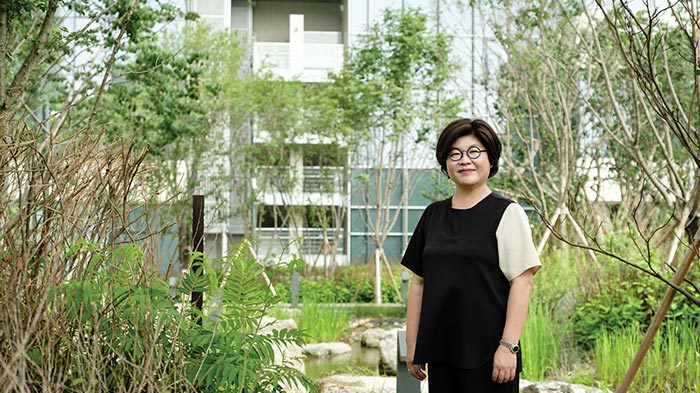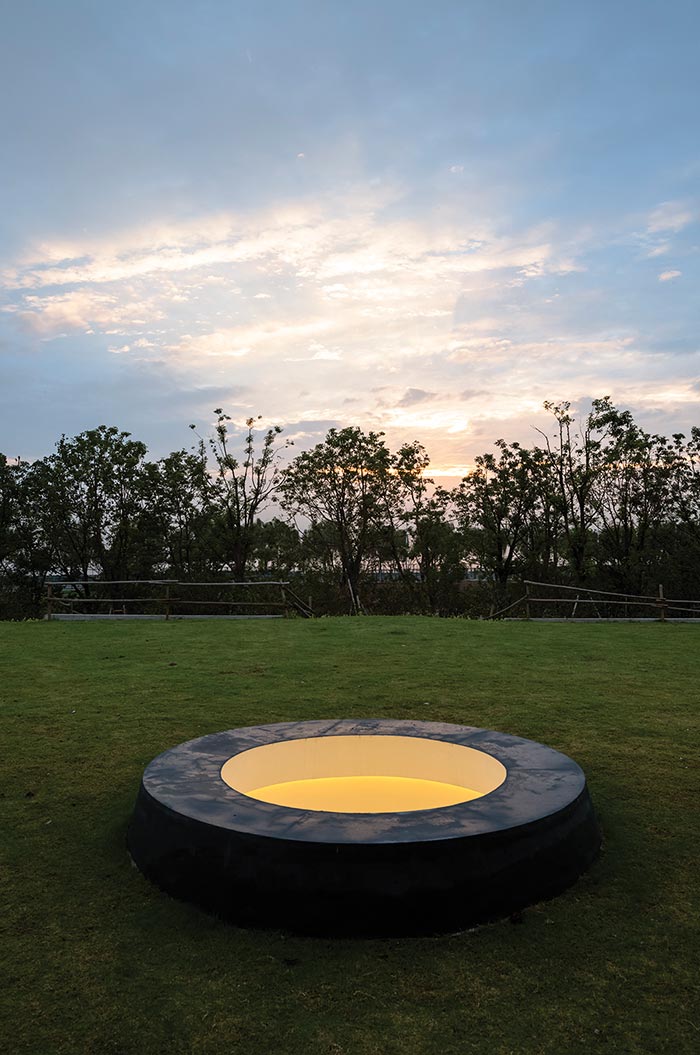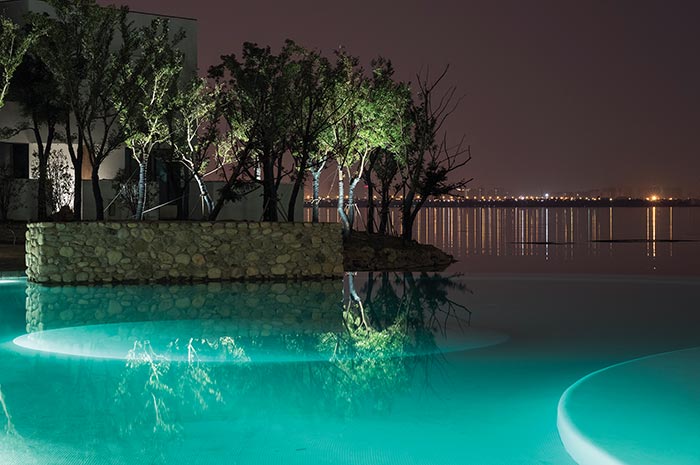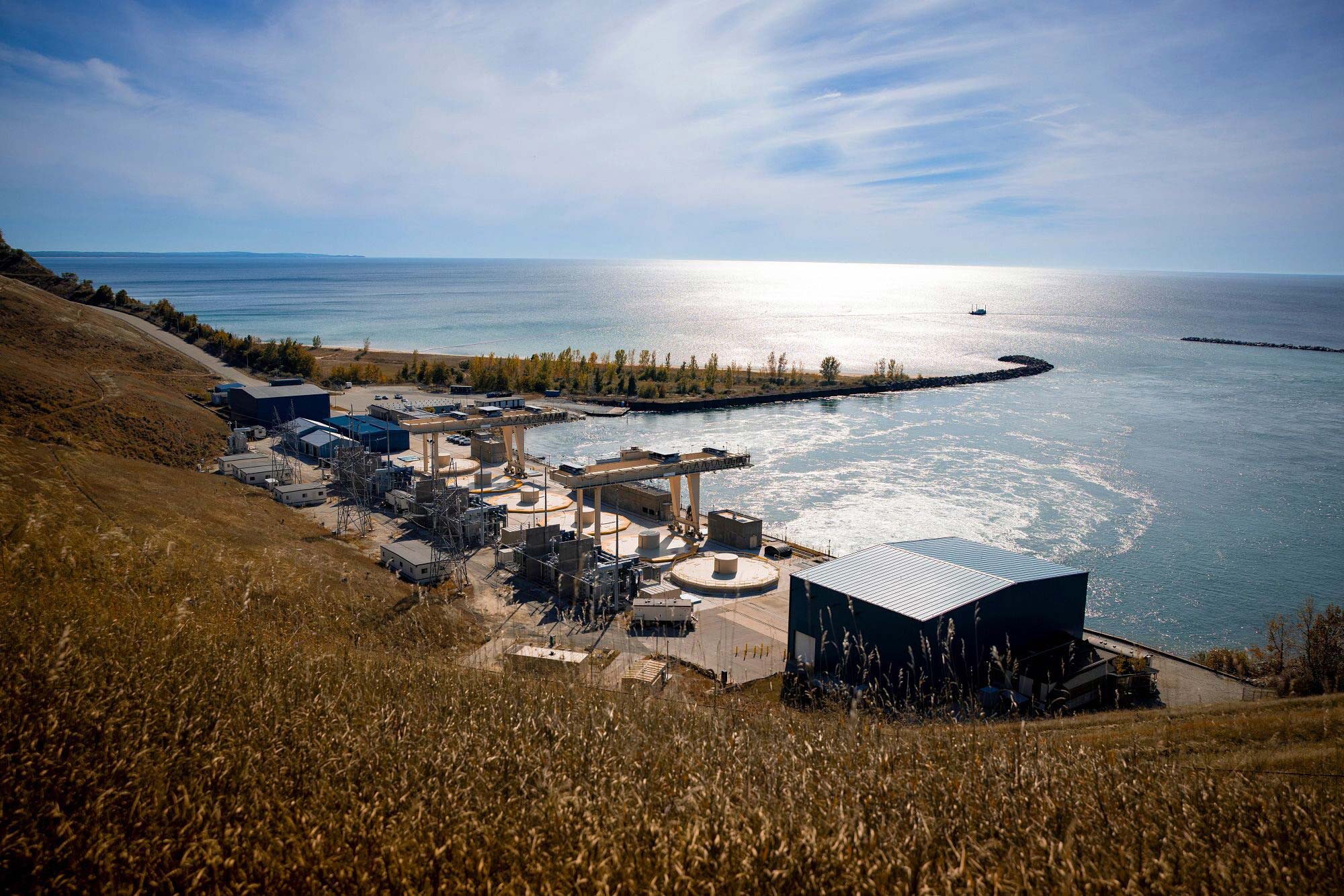
Portico Fall 2021: Leekyung Han, B.S. ’94, Has Mastered the Balancing Act of Design + Numbers + Career + Wellness
It’s fitting that Leekyung Han, B.S. ’94, is developing her own wellness retreat center in Korea — because at two pivotal moments, her personal health and wellness caused her to reevaluate her career.
Most recently, it nudged her to start her own real estate development advisory firm, Polaris Advisory Ltd., after serving for nearly six years as head of real estate development at IMC Octave, a Chinese lifestyle-based real estate conglomerate. At IMC Octave, Han oversaw the company’s investments, land acquisition, and projects in China, Japan, and Malaysia — work she describes as “the A to Z of real estate development.”
Han was drawn to IMC Octave because their vision of creating holistic wellness retreats and centers (they’ve built a couple of them throughout China) paralleled their equally holistic approach to business. “We had balanced conversations about design philosophy, budget and project management, and construction,” she says. “It felt like a rare opportunity because so often either numbers drive decisions or design drives decisions.”

One of her biggest projects was Sangha Retreat, a mixed-use wellness retreat encompassing 1.7 million square feet in Suzhou. Over the course of six years, she maintained a grueling schedule to keep the development on track. She was so busy leading the creation of this healing retreat for others that her own health suffered.
When she had to have surgery, “I started to think about the life I want to live,” Han says. “No matter how hard I worked, it was for someone else. I wanted to build something for myself.”
Taking the knowledge she learned at Octave, Han is planning to secure investors and scout locations for a wellness retreat that she wants to develop in Korea. An important part of her vision is to make wellness accessible to everyone, not just those who can afford luxury resorts.
“There needs to be a revolution in the hotel industry, so that hotels are places for healing, not just business or vacation. Real healing and recuperation are different from relaxation, and especially after COVID, holistic wellness is more important than ever,” Han says.
While she lays the groundwork for building her own center, Han’s biggest client since launching Polaris has been Marriott Corp. She oversees technical services in Korea for the hotel chain, and in the past three years, she has opened 11 hotels, with another five scheduled to open by next year. She ensures that interior and exterior design and technical specifications are in order before opening the hotel and handing the reins over to Marriott’s operations team.
This fall she also published a book, Everything About Hotels, a tutorial about hotel development in nontechnical language. Her motivation was “to raise the bar of what people should expect from a hotel, in order to help the industry advance in Korea,” she says.
Han also hopes the book will establish her expertise in real estate development in her birth country, since she has spent most of her career elsewhere. Her real estate development career includes Intrawest in Reno, Nevada, and Pyramid Hotel Group in Boston, where her renovation of the Crowne Plaza Hotel in New York City, adjacent to Lehman Brothers, gave her a front-row seat to the collapse of the global economy and her own real estate development portfolio. In 2009, she joined Tourism Development and Investment Company, Abu Dhabi’s developer of large-scale tourism projects. There, she helped lead the development of Saadiyat Cultural District, a multibillion-dollar project that includes branches of the Louvre, the British Museum, and the Guggenheim, designed by Frank Gehry. From there, she went to Hong Kong to serve as head of development, planning, and construction at Wyndham Hotel Group before landing at IMC Octave.

While she has a diverse and impressive resume as a developer, her career in real estate was born out of another moment where health concerns caused her to question her path.
After graduating from Michigan, she earned an M.Arch at Harvard and went to the Netherlands to practice with Wiel Arets. “After Harvard, I was a very artsy architect. Design was all that mattered,” Han says. “So my time in Wiel’s studio was a beautiful period where I learned a lot.”
But something was wrong. Han worked long hours to the point where she made herself sick — ultimately leaving Europe to seek treatment in Korea, followed by a job with an architecture firm in Boston. As her physical health improved, she remained troubled by what she saw as a flaw in architecture education. “The designer is not the one who realizes the design; the owner is by controlling the budget. I decided I’d rather be on the owner side.”
So she earned a master’s degree in real estate development at the University of Southern California, pivoting to her current path. “I love the balance between design and numbers,” she says of real estate development. “As an architect, I thought creativity meant design. But design and numbers working together was a new way of being creative. Financial pro forma is basically drafting a scenario with numbers instead of drawings.”
She appreciates the ability to think broadly and thoroughly about problems, which she says was born of her time at Michigan: “When I think of Ann Arbor, it still feels like home. Beyond the sense of community, what I enjoyed most was that there was no right answer. That’s different from the more formulaic approach to education in Korea, so I was mesmerized by the number of ways to consider a problem.”
— Amy Spooner









